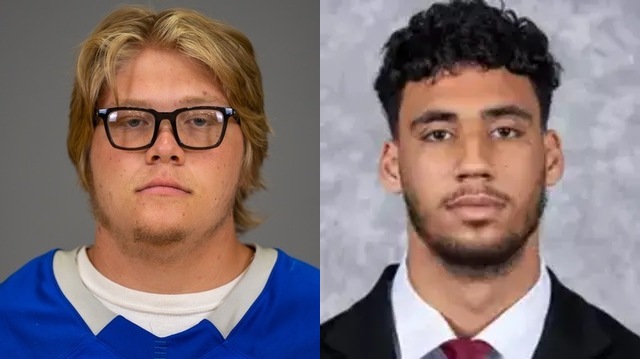Florida Institute of Technology issued the following announcement.
Bottle caps may serve a key role in preventing spills from plastic bottles, but when it comes to recycling, they get no respect. They are often discarded as recycling plants don’t have a use for them.
Novel research now underway at Florida Tech may lead to a new, important future for these underappreciated bits of plastic – with the Indian River Lagoon as the beneficiary.
Ocean engineering and marine sciences assistant professor Austin Fox and graduate oceanography student Abbey Gering are working on an Indian River Lagoon water treatment that will feature mesh bags filled with bottle caps. The bags will be placed in strategic locations within the lagoon to allow “good” bacteria to grow on them. These good bacteria can convert and remove excess nitrogen from the lagoon through a process called denitrification, helping clean the water and contributing to the prevention of harmful algal blooms. The bags can be moved to other parts of the lagoon, with the accumulated bacteria helping improve water quality in whatever areas they are needed.
“We’re trying to take this product and give it a second life to do something beneficial for the environment,” Fox said.
This doesn’t mean that tossing your bottle caps into the lagoon will lead to cleaner water, Fox and Gering said. The cap-filled bags will work best in ideal conditions, where the bacteria would thrive with an abundance of nitrogen and just the right amount of oxygen, leading to biochemical reactions that would in turn lead to improved water quality.
This project stemmed from testing if adding oxygen to the lagoon would improve water quality. While there were promising results with aeration, Fox felt like the results could be better if they had the right bacterial communities. This is because the degraded lagoon sediment where the water-cleaning bacteria would grow was not ideal for those types of organisms. It was then that Fox examined whether they could develop a place for the bacteria to live, which led to Gering using bioballs –plastic balls used in home aquariums – to provide a place for that growth. Those healthy bacteria helped to get rid of the nitrogen, but Fox and Gering wanted to find a sustainable and cost-effective way to carry this finding forward.
Enter the bottle caps.
The project has had the fringe benefit of strengthening community connections. In addition to reaching out to students about gathering and providing bottle caps, the team is working with businesses such as the Brevard Zoo and local coffee shops to collect the plastic tops. Civic engagement has also allowed for an opportunity to increase awareness.
“You can keep track of how much plastic you’re using because once you start collecting it, you start realizing how many bottle caps you use daily,” Gering said. “It’s a good way to get the community more aware of their use, while also reusing it for something that may help water quality.”
The bottle caps are part of a multifaced effort at Florida Tech to help improve the water quality and health of the Indian River Lagoon, but the work done here could have an impact worldwide.
“Coastal water quality is one of the most ubiquitous problems of coastal areas around the globe,” Fox said. “We like to look at the lagoon as this microcosm where we can study these global processes, and it’s easy to access and has a huge variety of environments. We can study here how something like these bottle caps might work, and that data can be applied elsewhere.”
For more information or to donate caps, contact Abbey Gering at geringa2016@my.fit.edu.
Original source can be found here.


 Alerts Sign-up
Alerts Sign-up